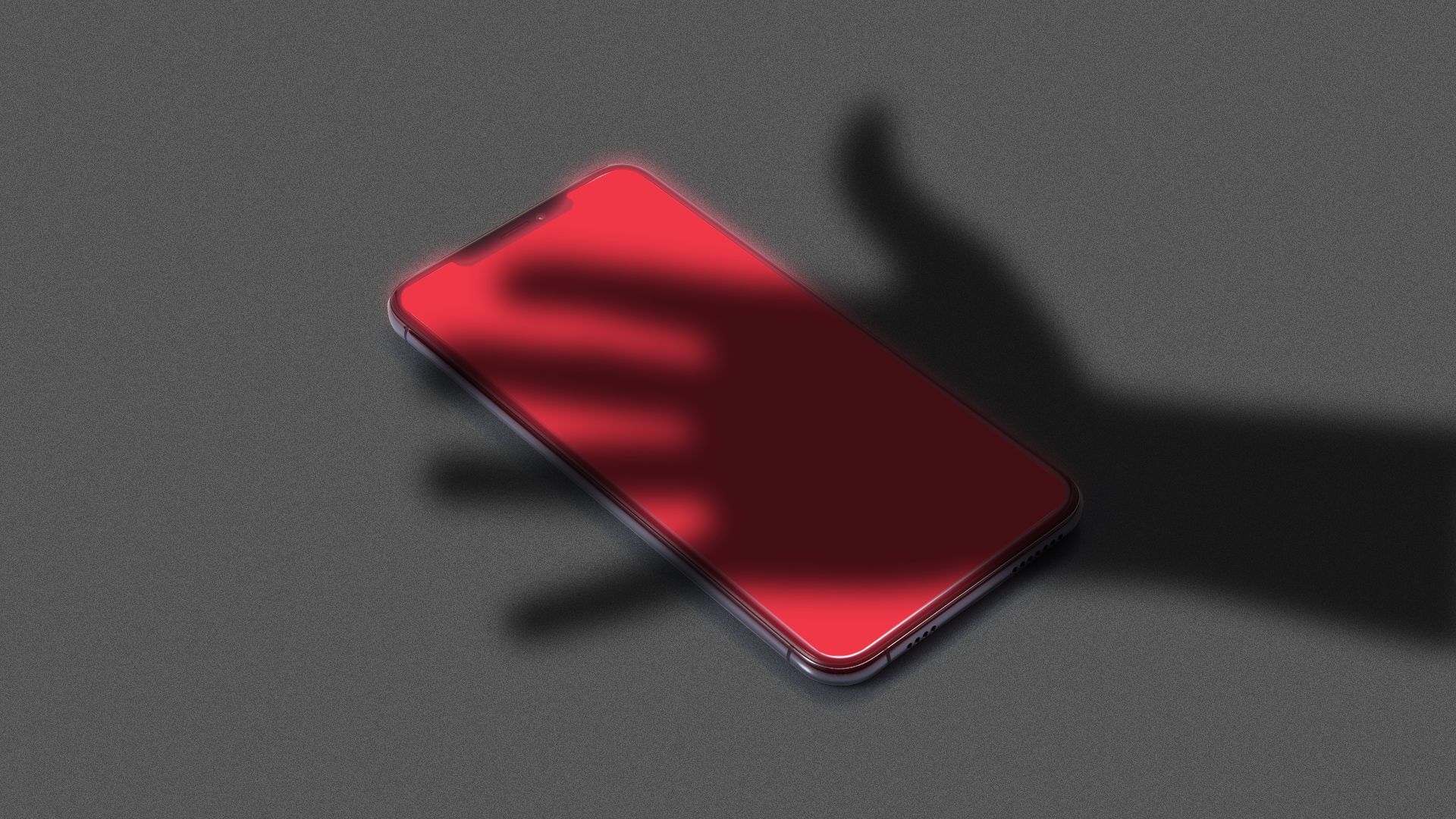Scammers cash in on coronavirus panic
Add Axios as your preferred source to
see more of our stories on Google.

Illustration: Aïda Amer/Axios
Scammers are seizing on the fear and chaos swirling around the coronavirus pandemic to swindle people out of their money and identities.
Why it matters: Americans have reported almost $18 million in fraud losses due to such scams. The Federal Trade Commission received more than 23,000 coronavirus-related fraud or identity theft complaints since the start of the year, as of April 21.
How it works: Many schemes involve airline or vacation refunds, government stimulus checks, and medical supplies like thermometers or face masks to gain access to victims' personal and financial information.
- The FTC sent warning letters to seven companies as of early March, including one owned by televangelist Jim Bakker, that are allegedly selling products they claim cure or prevent the virus.
The big picture: This isn't just a problem for Americans.
- The United Kingdom's National Fraud Intelligence Bureau announced that around £2 million ($2.5 million) has been lost to coronavirus-related scams. At least 824 people have fallen victim to schemes this year, the BBC reports.
- Prime Minister Justin Trudeau warned Canadians to look out for text-message scams linked to the country's $82 billion coronavirus support package, according to Global News Canada.
The FTC recommends that people not respond to texts, emails or calls about checks from the government, not click on links or download files from unknown sources, and ignore online offers for vaccinations and virus test kits.
- The agency specifically cautions people to watch emails from scammers claiming to be from the Centers for Disease Control and Prevention or the World Health Organization.
Go deeper: The coronavirus chain reaction
